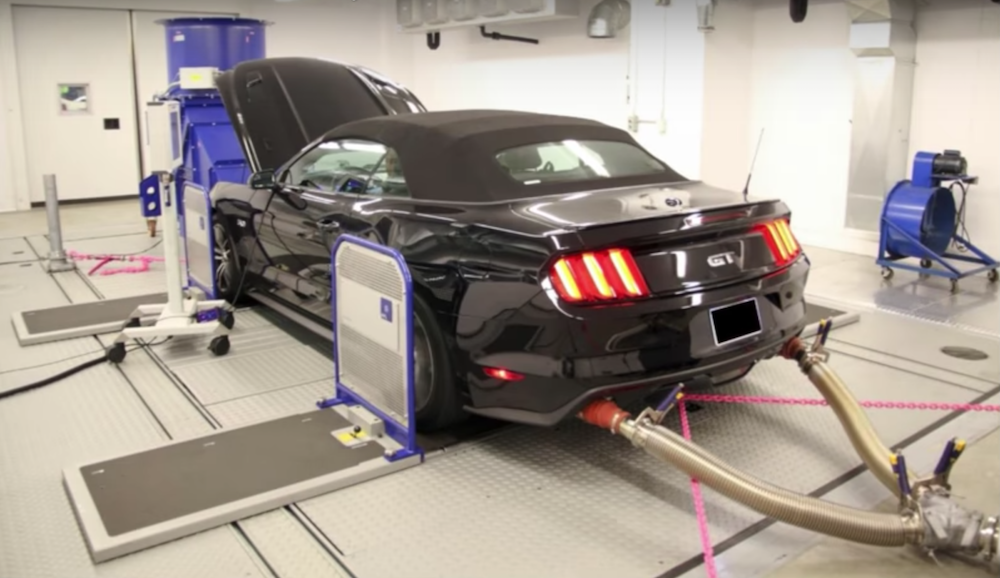Would You Ever Use Regular Unleaded in Your Mustang?
Just how much of a difference does the high-octane stuff make?
For most owners of performance cars, it’s almost a given that you’ll be buying premium fuel. You know, the high-octane stuff — the option that costs upwards of 20 cents above regular at the pumps. How many of us have looked at that “PREMIUM FUEL ONLY” warning on our cars and sighed every time we felt a little light in the wallet? But hey, it’s what the manufacturer says. We wouldn’t want to deal with engine knock, sluggish acceleration, poor fuel economy, or any number of phantom problems by getting stingy at the pump, would we?

Well, maybe we would. According to everyone’s online automotive expert, Jason Fenske of Engineering Explained, fuel grades doesn’t really make too much of a difference.
AAA recently released a study suggesting that it doesn’t always make sense to follow manufacturer’s recommended octane ratings, at least from a financial standpoint. Using his trusty whiteboard, Jason uses six modern cars to support AAA’s findings.
The cross-section of vehicles is impressive and perfectly suited to this experiment. There are four-cylinder cars (A turbocharged Jeep Renegade, Audi A4, and naturally-aspirated Mazda Miata), a 3.5-liter EcoBoost V6 Ford F-150, and two V8-powered cars: A Cadillac Escalade and Ford Mustang GT.
ALSO SEE: Daily Slideshow: Ford Mustang to Go Electric by 2020
In short, Jason’s results were surprising. Engineering Explained ran the cars several ties on the dyno, at a 0% grade, followed by a 2%, 4%, and 6% grade. At first, very few of the cars saw any real benefits from premium fuel. The F-150 saw a 7.1% increase in power, while the Escalade saw a 5.0% boost. The Mustang saw a meager 2.3%. The Audi A4, actually decreased 1.0% with premium fuel.
But here’s where premium makes a difference: Since higher-octane fuels can handle advanced timing, engines use less air and fuel, giving a bit better fuel economy. But as Jason says “It seems like the bigger engines benefitted from the premium fuel.” The Mustang, for one, saw an 8.0% increase in fuel economy.
Thanks to advances in engine computers, you don’t really have to worry about engine knock anymore. That means if you’re a little short and need to put regular in your newer car, there probably won’t be any long-term consequences on your engine. You will be down a little bit on power and fuel economy, but if you’re just trying to get home you’ll be fine.
As Jason concludes: “If your car says you should use premium fuel, then obviously, you should use premium fuel. If it says you should use regular fuel then you should use regular fuel. Now, if it says it recommends premium fuel, you may get a power benefit from it; in towing scenarios it may be useful. But from a cost perspective, there’s not really a justification for it.”
Be sure to check out the whole video. It’s 13-plus minutes of Engineering Explained goodness. If you’re into graphs, charts, and a whole lot of numbers, you’ll love it.
Do you always follow Ford’s fuel recommendations, or do you go with regular gas from time to time? Let us know in the comments below.
